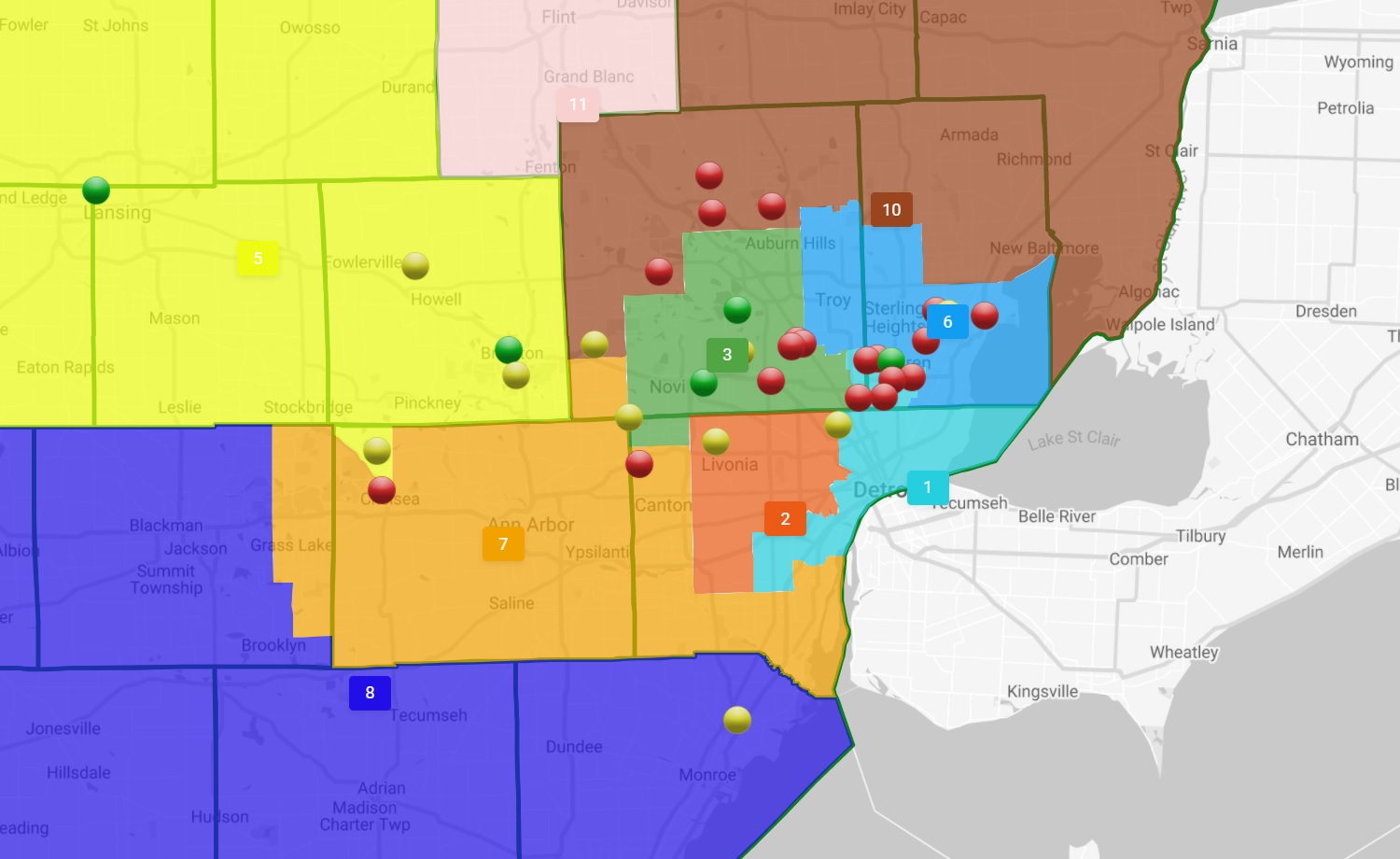It’s Time to Tell Michigan’s Redistricting Commission What You Think of Their Draft Maps
Starting this week, the Michigan Independent Citizens Redistricting Commission will hold public meetings all over the state collecting input on 10 draft maps.

The commission to redraw Michigan’s congressional and state legislative maps is hard at work trying to figure out which voting districts Michiganders will be in for the next decade. And given some of the proposed drafts, this could have a major impact on the makeup of Michigan’s Legislature and who the state sends to D.C. starting next year.
As part of the weekly series, MichMash hosts Cheyna Roth and Jake Neher spoke with Bridge Michigan State Capitol reporter Sergio Martínez-Beltrán to talk about the commission’s 10 draft maps and the public comment period that is now open for residents to give feedback.
Subscribe to MichMash on iTunes, Spotify, Google Podcasts, NPR One or wherever you get your podcasts.
The Michigan Independent Citizens Redistricting Commission exists because Michigan voters approved a new state constitutional amendment in 2018. It’s made up of Democrats, Republicans and independents from all over the state. And it has spent months drawing the political boundaries that will be used for the next decade.
“And that means they spent hours and hours and hours of meeting time drawing these maps, listening from the community from those communities of interest — which are the groups that share social, cultural and other similarities — listening from them, absorbing that input and that feedback, and then trying to translate that into the draft maps,” Martínez-Beltrán says.
The commission voted on 10 draft maps and those are the ones it is going to bring forward as they start the second round of public hearings. You can view the draft maps here.
Starting this week, the commission will hold public meetings all over the state collecting input on those draft maps, starting on Wednesday at TCF Center in Detroit.
Whichever maps are chosen, the implications could be huge — even if the political margins are not.
“We’ve seen that there’s one draft map that would evenly split the [state] Senate. So, 19 seats for the Republicans, 19 seats for the Democrats,” says Martínez-Beltrán. “And then we’ve seen the other two maps, which would give a majority to either Democrats or Republicans. So truly anything could happen.”
While Republicans in the state House are likely to maintain their edge with the proposed maps, that outsized advantage could decrease over time, Martínez-Beltrán says.
“And so what we are probably going to see is that … the Republicans would be ahead of the Democrats by only two seats … but Democrats can still be hopeful of the new draft maps,” he says.
Trusted, accurate, up-to-date.
WDET strives to make our journalism accessible to everyone. As a public media institution, we maintain our journalistic integrity through independent support from readers like you. If you value WDET as your source of news, music and conversation, please make a gift today.
